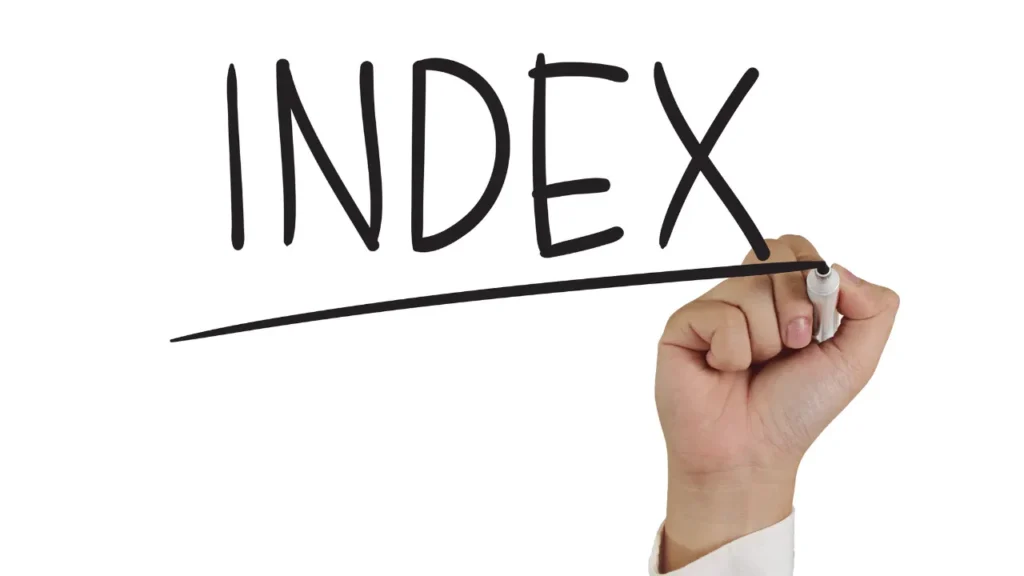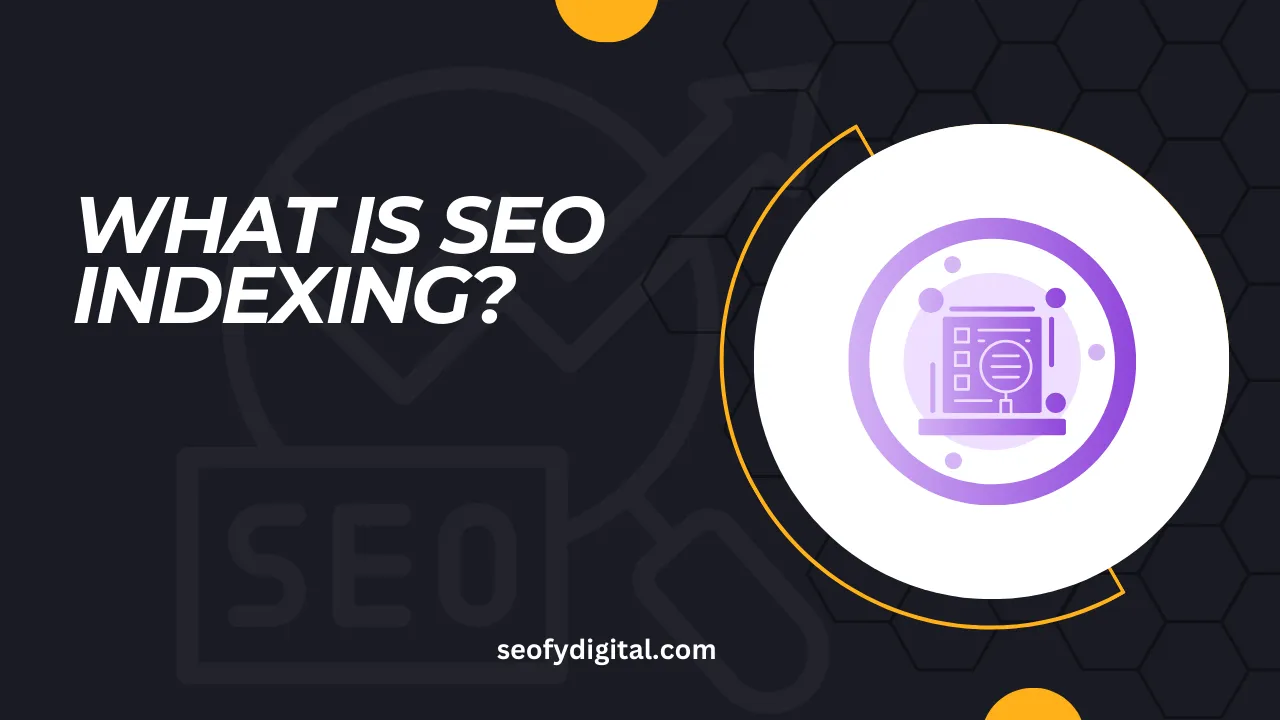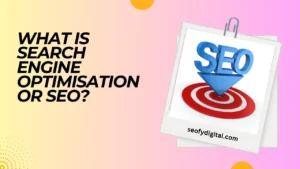In today’s digital age, being found online can make or break a business. Whether you’re a content creator, a small business owner, or a large corporation, your ability to reach your audience relies heavily on how visible your website is to search engines.
Have you ever searched for a product or service online, only to find it buried under pages of results? This underscores the importance of understanding SEO indexing. Without proper indexing, even the most insightful content or valuable product can remain invisible to potential customers.
SEO indexing is the process through which search engines like Google discover, analyze, and store web pages, making them eligible to appear in search results. Knowing how indexing works and optimizing your site for it is essential to ensuring that your content reaches your intended audience.
This article will explain how search engines work, why indexing is crucial, the factors that impact it, and best practices for enhancing your site’s indexation.
Understanding SEO indexing can be the first step toward enhancing your online visibility and driving more traffic to your site. Let’s explore the mechanics behind how search engines index web pages and uncover strategies that can make a tangible difference in your digital presence.

Contents
How Search Engines Work
Crawling: Search engines send out automated bots, often called spiders, to explore the internet by following links from known pages to discover new or updated content. This process ensures that search engines have the most current information about web pages.
If your website lacks external links or uses restrictive settings in robots.txt, crawlers may bypass it, leaving your content unindexed. Crawling is the entry point for your website to gain visibility on search engines, making it crucial for pages to be easily accessible.
Indexing: Once a page is crawled, search engines analyze its content and structure, storing it in their index. This vast database enables search engines to pull relevant information when users enter a query.
The quality of content, use of relevant keywords, metadata, and internal linking play a significant role in the indexing process. An indexed page is essentially a step closer to being shown to users when they search for related topics.
Ranking: The final step in the process is ranking, which determines the order in which indexed pages appear on search engine results pages (SERPs). Search engines utilize complex algorithms that assess factors like content relevance, authority, and user experience. A high-ranking page is more likely to be clicked on, so optimizing for ranking is essential.
The Importance of Indexing
Visibility: A page that is not indexed is like a book in a library that is not listed in the catalog. It exists, but no one can find it. Being indexed means your website can be discovered in search results, which is the starting point for attracting visitors.
Traffic: Indexing is directly tied to the potential for organic traffic. Search engines favor showing indexed content in response to user queries, so getting your pages indexed can significantly increase your website’s exposure.
More exposure means more visitors, which can lead to more interactions and potential business.
Revenue: Increased traffic often leads to higher revenue potential. Whether your site generates income through e-commerce sales, advertisements, or service bookings, the key is to get indexed so your target audience can find you.
Proper indexing practices are essential for ensuring your business or content receives the visibility it needs to be profitable.

Factors Affecting Indexing
Website Structure: An effective and well-organized site structure is critical for search engine crawlers. Clear navigation and logical page hierarchies allow search engines to find and index important pages more easily.
For instance, using descriptive headings, concise URLs, and effective internal linking helps guide bots through your site, ensuring essential content is indexed.
Content Quality: High-quality content is essential for indexing. Search engines prioritize content that is engaging, relevant, and unique. Thin, duplicate, or poorly written content may lead search engines to ignore or de-prioritize your pages.
Content should be optimized with targeted keywords but remain reader-friendly and informative.
Technical SEO: The technical side of SEO plays a significant role in indexing. Properly optimized technical elements, such as site speed, mobile-friendliness, structured data, and error-free pages, contribute to effective indexing. Issues like slow load times, broken links, or incorrect use of the robots.txt file can prevent pages from being crawled and indexed properly.
Backlinks: Backlinks serve as a trust signal for search engines. Websites with authoritative and relevant backlinks are considered more credible, which can expedite the indexing process. Quality backlinks from reputable sites can help a page stand out, making it more likely to be indexed quickly and ranked higher in search results.
Best Practices for Improving Indexation
- Submit an XML Sitemap: An XML sitemap is a file that lists all the important pages on your site and helps search engines find them. Submitting a sitemap to Google Search Console can ensure that no valuable pages are missed during crawling.
- Use Relevant Keywords: Ensure that your content is optimized with keywords relevant to your audience’s search queries. Use these keywords naturally within your content, headers, and meta descriptions.
- Fix Technical Issues: Regularly audit your website to fix broken links, ensure fast page loading times, and verify mobile-friendliness. These technical aspects ensure that search engines can crawl and index your site without issues.
- Optimize Website Structure: A clear, logical structure with strategic internal linking can help crawlers navigate your site efficiently. Use proper headers (H1, H2, H3) and ensure that navigation menus are intuitive.
- Build High-Quality Backlinks: Establishing connections with reputable sites that link back to your content improves your credibility and signals search engines that your page is worth indexing.
- Monitor Indexation: Use tools like Google Search Console to monitor your site’s indexation status. This helps identify pages that are not indexed and highlights potential issues.
Conclusion
SEO indexing is fundamental for increasing a website’s visibility and driving organic traffic. By understanding how search engines work and the factors that affect indexation, you can optimize your website to ensure that it is crawled, indexed, and ranked effectively.
Implementing best practices such as submitting an XML sitemap, using relevant keywords, fixing technical issues, and building quality backlinks will significantly enhance your site’s indexation potential.
Indexing is not just about getting your page seen by search engines; it’s about making sure your content reaches the people who need it most. Taking proactive steps to improve your site’s indexability can lead to greater traffic, increased revenue, and stronger online authority.
FAQs
1. What is SEO indexing?
SEO indexing is the process where search engines discover, analyze, and store web pages in their database, making them eligible for display in search results.
2. How long does it take for a page to be indexed?
The timeframe varies from a few hours to weeks, influenced by factors such as site authority, content updates, and technical optimization. Submitting a sitemap can accelerate this process.
3. What happens if my page isn’t indexed?
If your page isn’t indexed, it won’t appear in search results, limiting your website’s potential to attract organic traffic.
4. How can I check if my page is indexed?
You can check by typing site:yourwebsite.com/page-url into Google or by using Google Search Console.
5. What are common reasons for a page not being indexed?
Issues like poor site structure, blocked pages via robots.txt, thin or duplicate content, and technical errors can prevent a page from being indexed.
6. Can indexing be impacted by mobile-friendliness?
Absolutely. Mobile-friendliness is crucial as search engines prioritize mobile-optimized content. Sites that aren’t mobile-friendly may face indexation challenges.








